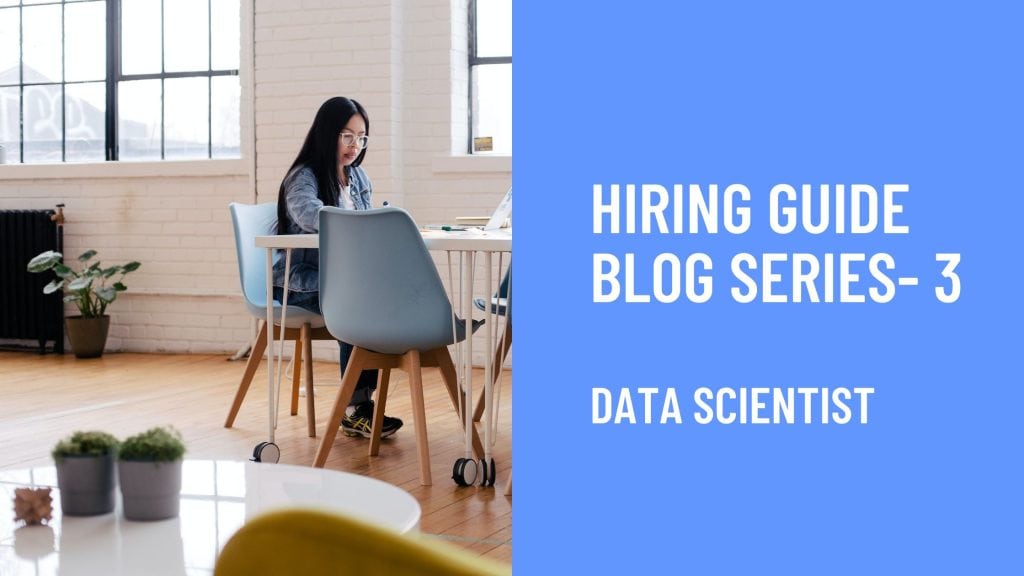The role of a Data Scientist is increasingly critical in today’s data-driven world. This guide outlines the role of a Data Scientist, the essential skills and qualifications required, sample interview questions, best practices for hiring, and the ideal candidate profile.
This comprehensive guide aims to assist organizations in effectively hiring top Data Science talent.
Defining the Role of a Data Scientist
A Data Scientist analyzes and interprets complex data to help organizations make informed decisions. They use advanced analytical techniques, machine learning, and statistical models to extract insights and solve business problems.
Responsibilities:
– Collecting and cleaning data from various sources.
– Analyzing large datasets to identify trends, patterns, and correlations.
– Building and deploying machine learning models to predict future trends.
– Collaborating with cross-functional teams to understand business requirements and deliver actionable insights.
– Communicating findings to stakeholders through data visualizations and reports.
– Staying updated with the latest data science methodologies and technologies.
Key Skills and Qualifications Required
Technical Skills:
– Programming Languages: Proficiency in Python, R, and SQL.
– Machine Learning: Experience with machine learning frameworks such as TensorFlow, PyTorch, or Scikit-learn.
– Data Manipulation: Skills in data manipulation and analysis using libraries like Pandas and NumPy.
– Statistical Analysis: Strong foundation in statistics and probability.
– Data Visualization: Proficiency with visualization tools such as Tableau, Power BI, or Matplotlib.
– Big Data Technologies: Familiarity with big data tools like Hadoop, Spark, or Kafka.
Soft Skills:
– Analytical Thinking: Strong problem-solving and analytical skills to interpret complex data.
– Communication: Ability to clearly communicate technical concepts to non-technical stakeholders.
– Collaboration: Experience working in multidisciplinary teams.
– Curiosity and Learning: A passion for continuous learning and staying updated with the latest trends.
Educational Qualifications:
– Bachelor’s or Master’s degree in Data Science, Computer Science, Statistics, Mathematics, or a related field.
– Relevant certifications or coursework in data science and machine learning.
Sample Interview Questions
Technical Questions:
- Programming Skills: “Can you write a Python script to clean and preprocess a dataset?”
- Machine Learning: “Describe a machine learning project you have worked on. What model did you use, and what was the outcome?”
- Statistical Analysis: “How would you approach a problem where you need to identify key factors affecting customer churn?”
- Data Visualization: “Show me a data visualization you have created and explain the insights you derived from it.”
Behavioral Questions:
- Problem-Solving: “Describe a time when you faced a significant challenge in a data science project. How did you overcome it?”
- Team Collaboration: “Can you provide an example of how you worked with a cross-functional team to deliver a data-driven solution?”
- Learning and Adaptation: “Tell us about a new data science technique or tool you recently learned. How did you go about learning it?”
Situational Questions:
- Project Management: “How would you handle a situation where your data model’s predictions are not aligning with business expectations?”
- Data Integrity: “What steps would you take if you discovered that the data you are working with is incomplete or inaccurate?”
- Stakeholder Communication: “How do you explain complex technical findings to a non-technical audience?”
Best Practices for Hiring
- Define Clear Objectives:
– Clearly outline the role, responsibilities, and expectations for the Data Scientist position. Ensure that job descriptions are precise and highlight the skills and qualifications required.
- Utilize Structured Interviews:
– Use structured interviews to maintain consistency and fairness. Prepare standardized questions and a scoring system to evaluate candidates objectively.
- Technical Assessments:
– Incorporate coding tests and technical assessments that focus on relevant skills such as programming, statistical analysis, and machine learning.
- Panel Interviews:
– Conduct panel interviews with multiple interviewers to gather diverse perspectives and reduce individual biases. Include team members from different departments to assess cultural fit and collaboration skills.
- Cultural Fit:
– Assess the candidate’s cultural fit within your organization. Evaluate their alignment with company values, team dynamics, and their ability to adapt to the company’s work environment.
- Feedback and Continuous Improvement:
– Gather feedback from interviewers and candidates to continuously improve the hiring process. Regularly review and update interview questions, assessment criteria, and evaluation methods.
Ideal Candidate Profile
The ideal candidate for a Data Scientist position is a highly skilled professional with a strong foundation in data analysis, machine learning, and statistical methods. They are analytical thinkers with excellent problem-solving abilities and the capability to communicate complex findings effectively.
Characteristics:
– Technical Proficiency: Demonstrates expertise in relevant programming languages, machine learning frameworks, and data visualization tools.
– Analytical Skills: Exhibits strong analytical and problem-solving skills, with the ability to interpret complex data.
– Communication Skills: Excellent verbal and written communication skills to interact effectively with both technical and non-technical stakeholders.
– Collaborative Spirit: Proven ability to work effectively in teams, contributing to a collaborative environment.
– Continuous Learner: Shows a commitment to continuous learning and professional development in the field of data science.
Conclusion
Hiring the right Data Scientist is crucial for leveraging data-driven insights and making informed business decisions. By defining the role clearly, identifying the necessary skills and qualifications, utilizing structured interviews, and following best practices, companies can streamline the hiring process and ensure they select the best candidates. This guide provides a comprehensive framework to assist organizations in their search for top data science talent, ultimately contributing to their success in a data-driven world.
Also Read:
Introduction to the Series: The Hiring Guide Using AI Interviews
Hiring Guide Blog Series: How to hire an AI Engineer
Hiring Guide Blog Series: How to hire a Technical Recruiter
By following the guidelines and utilizing the tools provided in this guide, organizations can enhance their recruitment strategies, ensuring they attract and retain the most capable Data Scientists.
Interviewer.AI is a technology platform purposely built to support Recruiters and HR teams in finding top talent for their companies. We also work with universities to help them with admissions and coaching, helping them use technology to solve for talent and training. Our mission is to make hiring equitable, explainable, and efficient. to screen in advance and shortlist the candidates that meet the criteria set.
Schedule a demo today to learn more about how AI interviews can help your hiring.
Gabrielle Martinsson is a Content Writer at Interviewer.AI. She’s a tech geek and loves optimizing business processes with the aid of tech tools. She also loves travelling and listening to music in her leisure.








